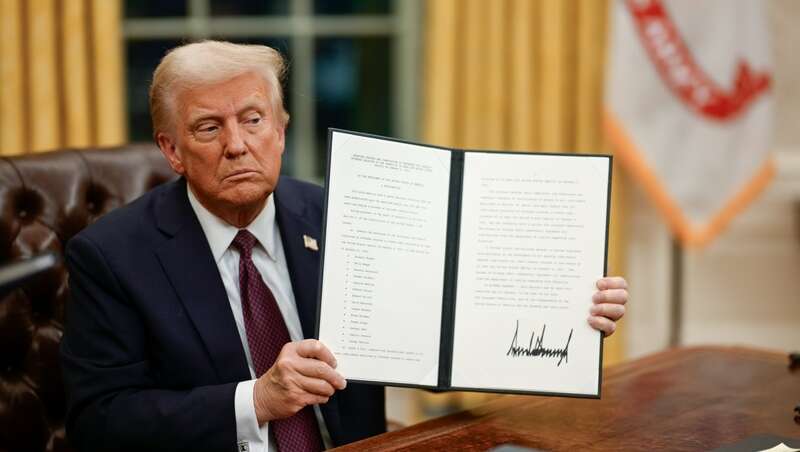
The Trump administration has fulfilled its promise of revoking the Biden-era executive order on artificial intelligence which has served as a framework for Federal agencies approach to the emerging technology for over a year now.
Signed in October 2023 by former president Joe Biden, the executive order on AI set standards for AI in eight categories including: safety and security; privacy; equity and civil rights; supporting consumers and workers; innovation and competition; American leadership; and government use of AI. The order also directed Congress to approve legislation on data privacy and other AI-related topics and issued policy marching orders to several Federal agencies for specific follow-up work.
A key focus of the executive order required agencies to set standards for AI testing and address related risks such as cybersecurity. The 2024 Republican Party platform vowed to repeal the order after saying that the order stifled AI innovation.
In his first slew of executive actions late on Monday, Trump repealed the AI order. Executive orders are typically relatively short-lived, leaving the next president to either extend or revoke previous administration’s orders.
While the Trump administration didn’t immediately say what – if any – new policy would replace the order, the administration is likely to take a more deregulated approach, confirming experts suspicions that Trump will operate on a “pro innovation” and “pro AI” platform.
During his first term, Trump issued two executive orders on AI that set guidelines for safe and trustworthy government use of AI while also boosting research and development funding.
Since Biden’s AI EO, Federal AI use cases more than doubled, with agencies reporting over 1,700 use cases by the end of 2024 compared to only 757 uses in the year before.
Major initiatives from the AI EO included the National Science Foundation’s (NSF) National AI Research Resource (NAIRR), the National Institute of Standards and Technology’s (NIST) AI Safety Institute (AISI), and the National Security Memorandum (NSM).
NAIRR has served as a shared national infrastructure to support AI research and bolster responsible AI use, while AISI launched draft guidance for developers of AI foundation models to manage misuse risks. AISI also signed its inaugural research and testing agreements with Anthropic and OpenAI to help the government access and assess the companies’ latest AI models.
The NSM secured AISI’s role as industry’s “primary port of contact” in the Federal government and provided AI guidance for the intelligence community by directing the government to implement concrete and impactful measures to ensure that the U.S. leads the world’s development of safe, secure, and trustworthy AI.
The repeal has already drawn criticism, including from Alexandra Reeve Givens, CEO of the Center for Democracy and Technology, who noted that Biden’s AI EO supported the safe and responsible adoption of AI tools.
“The Executive Order on Artificial Intelligence took a whole-of-government approach to advancing responsible AI innovation. Since its passage, agencies have invested significant time into developing guidance for various sectors to support AI adoption while respecting people’s rights and safety,” said Reeve Givens in a statement shared with MeriTalk. “That work tracked bipartisan interest in Congress — and, notably, was largely in line with the priorities President Trump laid out for AI during his first term in office.”
“But with or without the Order in effect, it’s in everyone’s interest to continue to adopt AI tools in smart, responsible ways and ensure America remains a leader in AI governance,” she said.
A final and separate AI-related executive order was issued by Biden last week to provide Federal support for the technology’s mounting energy needs. The order directed the Departments of Defense and Energy to lease Federal government sites to private sector companies to streamline building AI infrastructure while drawing power from new clean energy sources. Trump has not repealed that order.
